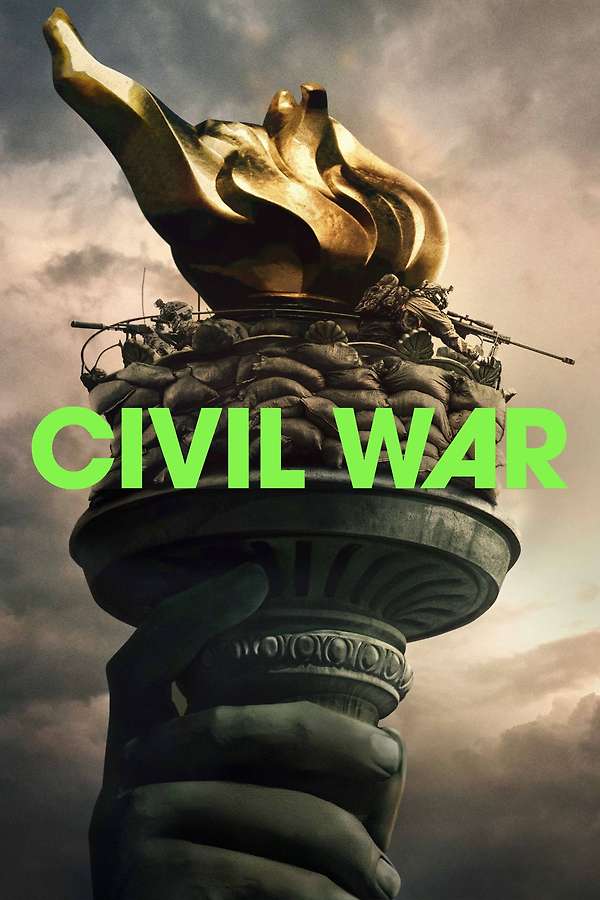Civil War, 2024 - ★★★★

Joel (Wagner Moura) is screaming his lungs out, arms at his side, a cigarette he didn't finish stuck in his right fist. Behind him, an American flag with two stars is blowing in the wind. A tank rolls in with a group of soldiers in the background, 2 feet away from him, blocking it from view. They ignore him. His primal screams of pain and suffering are silent. The soldiers don't feel it, and you don't hear it.
I mostly tuned out of anything political because I don't want to know and what I already know is too much. But if you think there's only so much you can take, watch this movie.
On its surface, this is a decent movie with a satisfactory plot: youth and innocence lost, war, and some good scenes. But to me this movie was personal. I tried to figure out why.
It's easier to start with the cinematography. Grainy, gritty, often overly contrasted with colorful graffiti or pink sunglasses. It's good. Very good. I itched for my camera several times, mumbling to the TV "damn, this is a good shot." This is important because the story is told through the eyes of two war photojournalists with a talent for the art.
The pictures they take are far from happy family photos. Lee (Kristen Dunst), a photojournalist veteran, has seen enough horrors for them to flash in her mind whenever she closes her eyes while Jessie (Cailee Spaeny), a novice who is just started her photojournalism journey, faces new horrors that suck the innocence out of her until there's nothing left. It takes talent to describe a story through the eyes of two talented photographers, and this movie has it to the point that I want to track down Rob Hardy (the cinematography director) for more of his work.
It's these photos they take that make the war real. A war is never about the war itself, it's about the people who experience it. A series of human moments in a hellscape that defy the reasoning of everyday life. A war is a war only when it's personal: until then it's just politics and heated debates on social media.
There's a plot to this movie, a reason this great American war broke out, but we only get glimpses of it. There's an authoritarian president who took his executive power too far (ordering the usage of military force on US citizens among other things), and two states, California and Texas, called the "Western Forces" are fighting back and surrounding Washington DC. There are other factions and states involved, a hint of a more complex structure in the background, but not much more.
The rest is built from carefully selected moments. There's a scene in the movie where Joel is asking a sniper and his spotter who's shooting at them and who's giving them orders. The spotter replies: "No one's giving us orders, man. Someone's trying to kill us, we're trying to kill them." That's it. It's enough. These moments worked beautifully throughout the movie, each scene freezes and is taken apart by the pictures Lee and Jessie snap away.
I'm not a huge patriot, but it gets to me when Americans dislike the flag because it represents injustice to them. True, the flag has been used by extremists as a symbol. But this is because these extremists hijacked the flag and what it represents. Meanwhile, this kind of hate toward what the flag represents is the same stuff that one day could cause events like in this movie.
Maybe it's because I was not born into what most around me have as a right. It was given to me. I never understood why the president of the United States still has to be born here. It doesn't make sense. If you ask me, it's a nation built by immigrants who seem to understand the American Dream well, probably much better than the extremist militias who use it as an excuse for their propaganda.
I don't think Alex Garland thought about all of this when he wrote the film, but I thank him for making me think about all this stuff.
